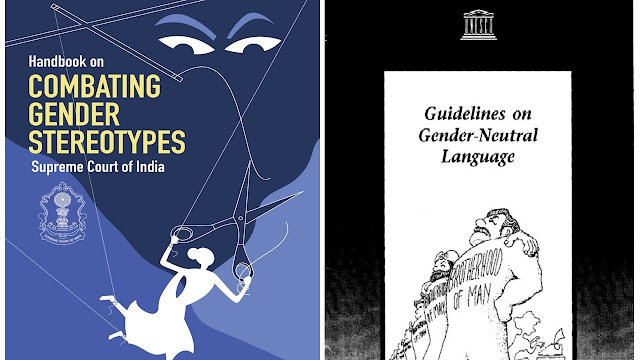On Marxist, Feminist, Ecocritical, and Queer Criticism
Introduction
In contemporary literary studies, critical theories
such as Marxism, Feminism, Ecocriticism, and Queer Criticism have provided
fresh lenses to interpret literature and the socio-cultural dynamics it
reflects. These approaches not only expand our understanding of texts but also
shed light on issues like power dynamics, environmental ethics, gender
representation, and sexual identity. Through these critical frameworks, we
interrogate traditional narratives and unravel the influences of ideology,
patriarchy, ecological consciousness, and heteronormativity.
- Marxist Criticism
- Rooted in the theories of Karl Marx and Friedrich Engels, Marxist Criticism explores the socioeconomic forces that shape literature. It positions texts as products of the cultural and economic structures of their time. Key texts like The German Ideology emphasize the impact of ideology on societal structures, while thinkers like Antonio Gramsci and Fredric Jameson explore hegemony and cultural materialism. Marxist critics often analyze class struggle, the role of the author’s social background, and the ways literature reinforces or challenges dominant ideologies.
- Feminist Criticism
- Feminist Criticism examines literature through the lens of gender inequality and the patriarchal structures embedded in cultural narratives. Foundational texts like Mary Wollstonecraft's A Vindication of the Rights of Woman and Virginia Woolf’s A Room of One’s Own advocate for women’s intellectual independence and critique male-dominated literature. Feminist critics such as Simone de Beauvoir and Elaine Showalter analyze the marginalization of women, the social construction of gender, and the representation of women as "Other" or aligned with nature, which has traditionally subordinated them in the cultural hierarchy.
- Ecocriticism
- Ecocriticism engages with literature to highlight environmental concerns and human relationships with nature. Influential works such as Rachel Carson’s Silent Spring and Aldo Leopold's A Sand County Almanac emphasize ecological preservation and critique the anthropocentric exploitation of nature. Ecocritics interrogate the binary between nature and culture, exploring how literature reflects the socio-ecological consciousness and promotes sustainable, ethical interactions with the environment. This approach often includes postcolonial and gendered perspectives, acknowledging how ecological degradation disproportionately impacts marginalized communities.
- Queer Criticism, or Lesbian and Gay Studies, challenges heteronormative ideologies and examines the representation of queer identities in literature. This framework not only uncovers homoerotic subtexts in mainstream literature but also questions rigid gender roles and boundaries. Texts like Judith Butler’s Gender Trouble have profoundly influenced Queer Theory, introducing the concept of gender as performative rather than inherent. Queer critics deconstruct societal norms around sexuality, gender fluidity, and the visibility of queer identities in canonical literature, providing a broader understanding of identity.

